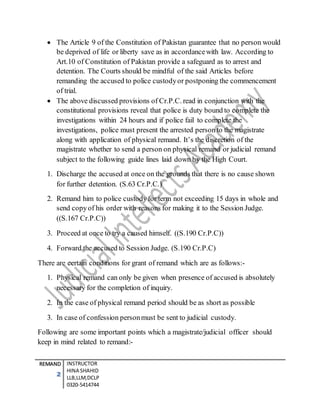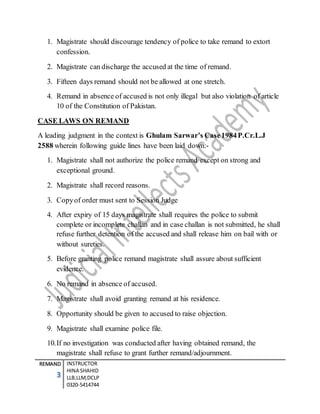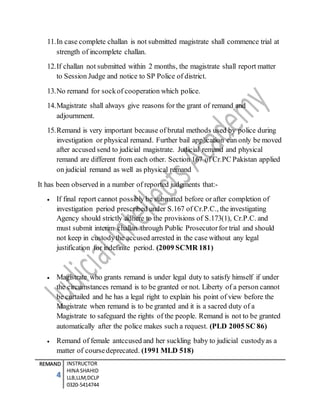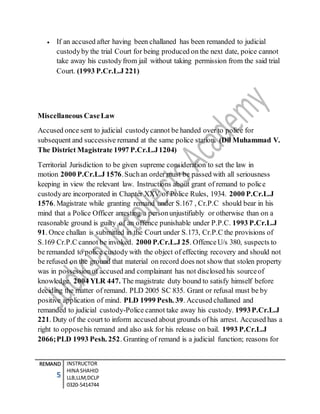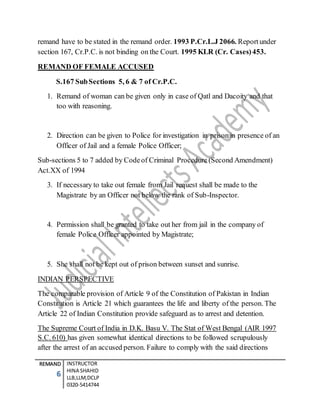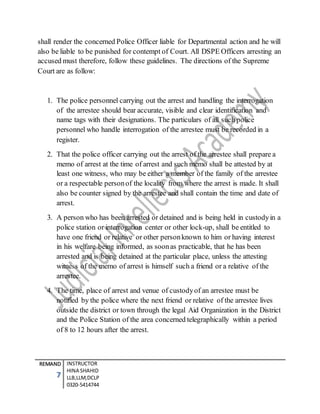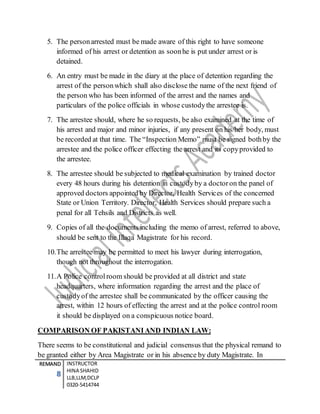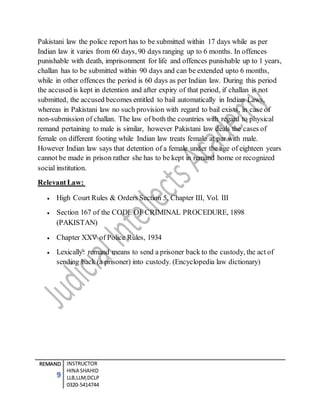The document provides a comprehensive examination of the concept of remand in Pakistani and Indian criminal law, outlining the definitions, types (physical and judicial), and the legal framework governing pre-trial detention. It discusses the constitutional safeguards for individuals regarding arrest and detention, and highlights the responsibilities of magistrates and police in granting remand while ensuring the rights of the accused are protected. Additionally, it contrasts Pakistani and Indian practices, emphasizing differences in procedural requirements and the treatment of female detainees.

